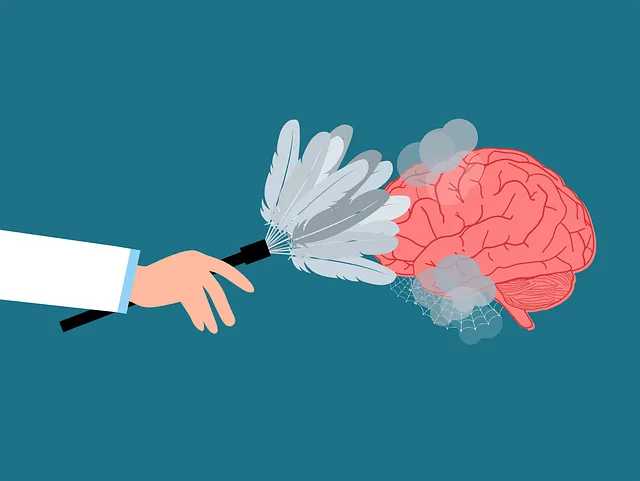Community outreach programs, led by the Parker Kaiser Permanente mental health center under its owner's initiative, effectively connect diverse populations with essential healthcare services. Through evidence-based practices like Mind Over Matter and Compassion Cultivation, these programs empower individuals to manage their well-being and build resilient communities. Tailored strategies, cultural competency training, and strong community engagement drive success, enhancing emotional intelligence and preventing depression. Measuring impact through participant feedback and behavioral changes ensures efficient resource allocation and long-term positive outcomes for both individuals and the community, making the Parker Kaiser Permanente mental health center a standout example of owner-driven excellence in mental health care.
Community outreach programs play a vital role in enhancing access to healthcare and improving mental well-being. This article explores the implementation of such programs, highlighting successful strategies through the lens of the Parker Kaiser Permanente Mental Health Center—a model for effective community engagement. We’ll delve into benefits, goals, and best practices while also examining how to measure the impact of outreach initiatives. Learn from real-world examples to foster a healthier society.
- Understanding Community Outreach Programs: Benefits and Goals
- Parker Kaiser Permanente Mental Health Center: A Model for Successful Implementation
- Strategies for Effective Community Engagement
- Measuring Impact: Evaluating the Success of Outreach Initiatives
Understanding Community Outreach Programs: Benefits and Goals

Community outreach programs play a pivotal role in fostering connections and enhancing the well-being of diverse populations. These initiatives, such as those implemented by Parker Kaiser Permanente mental health center by its owner, aim to bridge the gap between healthcare services and underserved communities. The benefits are manifold; from increasing accessibility to mental health resources to promoting overall community resilience. By taking these programs to the people, centers like Parker Kaiser Permanente not only cater to immediate needs but also cultivate a culture of emotional intelligence and compassion within the community.
The goals often include raising awareness about various mental health issues, educating community members on coping mechanisms and self-care practices, and fostering an environment where individuals feel supported and empowered. Incorporating evidence-based approaches like Mind Over Matter principles and Compassion Cultivation Practices can significantly enrich these programs. Such strategies not only empower individuals to take charge of their mental well-being but also strengthen community bonds, leading to lasting positive changes.
Parker Kaiser Permanente Mental Health Center: A Model for Successful Implementation

The Parker Kaiser Permanente Mental Health Center stands as a shining example of successful community outreach program implementation. By integrating innovative practices and prioritizing access to mental wellness services, this center has made significant strides in enhancing the well-being of its surrounding community. The center’s comprehensive approach includes offering Mental Wellness Journaling Exercise Guidance tailored to diverse populations, ensuring that individuals from all backgrounds can engage with mental health support on their terms.
Moreover, Parker Kaiser Permanente has demonstrated commitment to Healthcare Provider Cultural Competency Training, equipping staff with the necessary skills to offer empathetic and effective care. This focus on cultural competency has not only improved patient outcomes but also fostered a deeper connection between healthcare providers and the community they serve, promoting Mental Health Awareness and breaking down barriers to care.
Strategies for Effective Community Engagement

Community engagement is a cornerstone for successful community outreach programs, especially at facilities like the Parker Kaiser Permanente mental health center by owner. Building strong connections requires tailored strategies that cater to the unique needs and interests of the target population. One effective approach involves empowering individuals through Self-Esteem Improvement initiatives. Hosting workshops and group discussions centered on boosting self-worth can create a sense of belonging and encourage active participation in mental health programs.
The implementation of Mind Over Matter Principles offers another powerful tool for community engagement. Educational sessions that teach mindfulness, stress management, and positive thinking techniques have proven to be transformative. By integrating these practices into outreach programs, the mental health center can foster a sense of resilience and well-being, ultimately improving the overall mental health of the community. Tailoring Mental Health Education Programs Design to address specific concerns and misconceptions prevalent in the area is also vital for effective engagement and long-term success.
Measuring Impact: Evaluating the Success of Outreach Initiatives

Measuring the impact of community outreach programs is a vital step to ensure their success and effectiveness. Organizations like the Parker Kaiser Permanente mental health center by owner understand that evaluating initiatives goes beyond simple numbers. It involves assessing the long-term benefits on individual and community levels. By measuring emotional intelligence, resilience building, and depression prevention, for instance, they can gauge how these programs influence people’s well-being and overall mental health.
This process includes collecting feedback from participants, tracking improvements in key areas, and observing behavioral changes. Such evaluations are instrumental in identifying what works best and where adjustments might be needed. They also provide valuable insights that inform future outreach strategies, ensuring that resources are allocated efficiently to create a more supportive and resilient community.
Community outreach programs, as exemplified by the successful model at the Parker Kaiser Permanente Mental Health Center, can significantly enhance access to healthcare services and improve community well-being. By employing strategic engagement methods and clear measurement of impact, organizations like this one are revolutionizing mental health care. The benefits extend far beyond individual treatment, fostering stronger, healthier communities. As we navigate the complexities of modern healthcare, these initiatives underscore the importance of collaboration and innovative approaches to ensure everyone has access to essential services.



